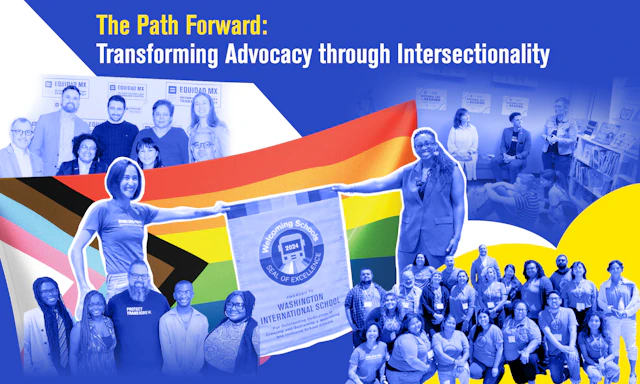
Cookies in use
HRC and CMSI Announce Three-Year Partnership to Support LGBTQ Students at HBCUs
by HRC Staff •
The HRC Foundation and the Penn Center for Minority Serving Institutions announced a new three-year partnership to increase diversity and inclusion for LGBTQ students at historically Black colleges and universities and other Minority Serving Institutions.
The HRC Foundation and the Penn Center for Minority Serving Institutions (CMSI) announced a new three-year partnership to increase diversity and inclusion for LGBTQ students at historically Black colleges and universities (HBCUs) and other Minority Serving Institutions (MSIs).
The partnership between the two organizations includes a commitment to creating and co-sponsoring a series of initiatives that will develop LGBTQ-inclusive programming at HBCUs around the country. Both CMSI and HRC expect their collaboration to help create resources and spread information about best practices for engaging LGBTQ students.
“We at the Penn Center for Minority Serving Institutions are excited about partnering with the Human Rights Campaign and aligning ourselves with the great work they do involving LGBTQ communities,” said Marybeth Gasman, Penn professor and director of CMSI. “HBCUs around the country are improving their institutional support for these students, and we hope this partnership will help provide them the tools and resources they need to achieve their goals.”
“For more than a decade, HRC has worked shoulder to shoulder with students, faculty, and administrators in building LGBTQ-inclusive and -affirming HBCUs across the country,” said Mary Beth Maxwell, HRC’s Senior Vice President for Programs, Research, and Training. “We look forward to expanding our already strong relationship with the Penn Center for Minority Serving Institutions to expand and enhance this vital work in the years ahead.”
CMSI and HRC have agreed to disseminate best practice guidelines relevant to LGBTQ health and wellness to Student Health Centers on MSI and HBCU campuses; develop and host webinars on topics such as “LGBTQ Inclusion” and “Residence Life Strategies”; and recruit a focus group of HBCU presidents to develop a program to recognize LGBTQ-inclusive institutions.
Later this year, HRC will hold its annual HBCU Leadership & Career Summit, which will be part of a program that empowers LGBTQ HBCU students to be change-agents on their campus and lead resourcefully through the intersections of race, religion, gender identity, class, and sexual orientation. For the last 11 years, HRC has hosted an annual HBCU Leadership Summit to train and prepare student leaders and administrators to advocate for LGBTQ inclusion and safety.
As of 2013, only 21 of the nation’s 105 HBCUs have LGBTQ student organizations, but this number has been increasing rapidly as national support for LGBTQ rights has gained momentum in recent years.
- Topics:
- Communities of Color
Love conquers hate.


